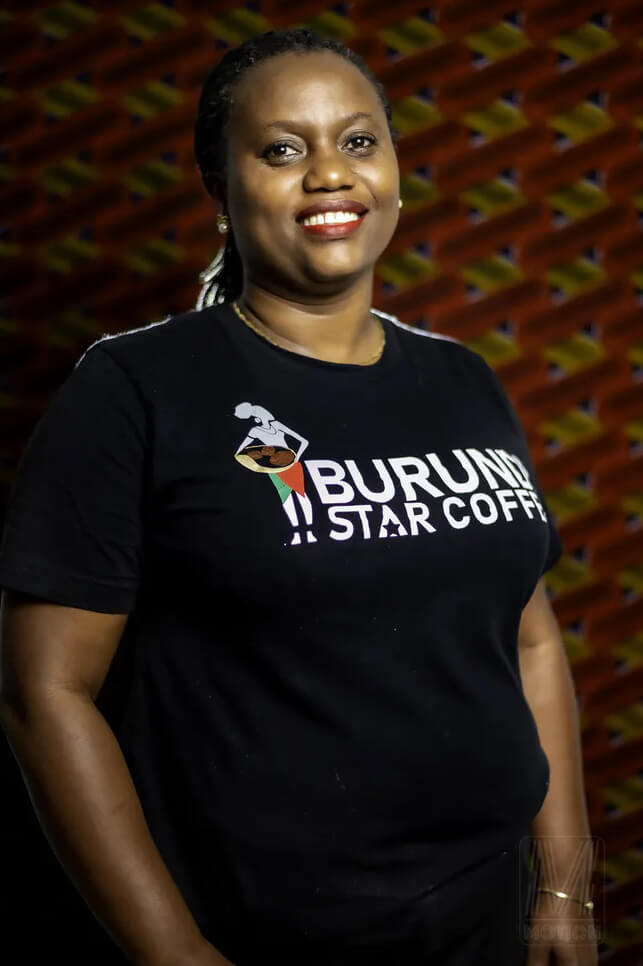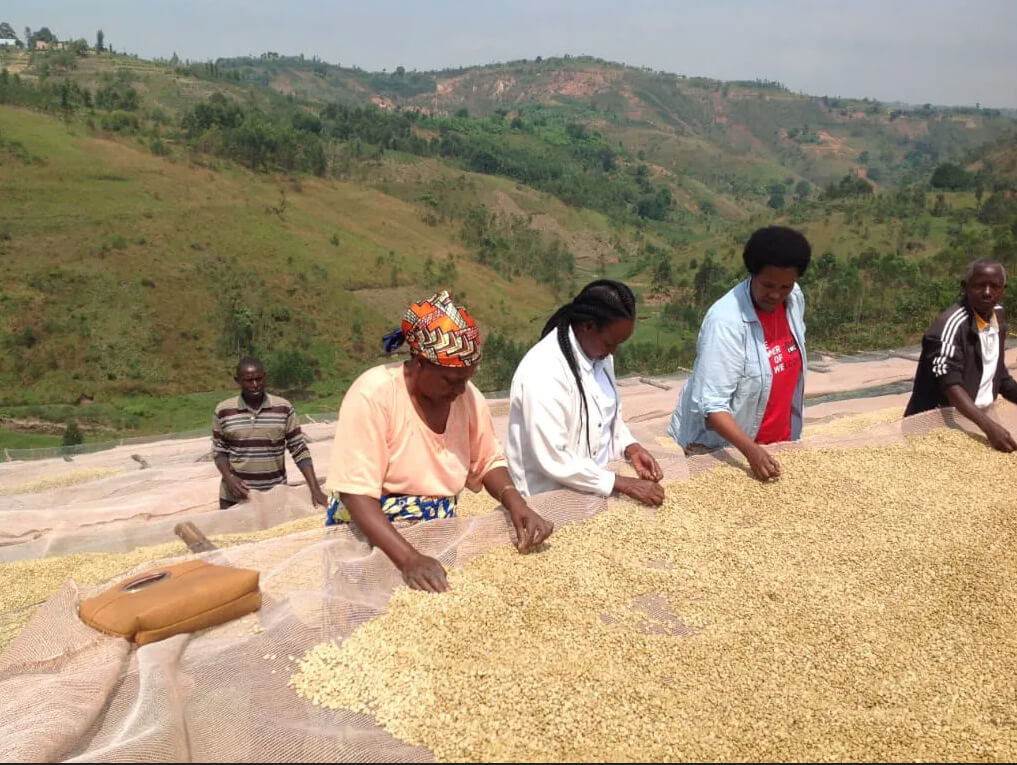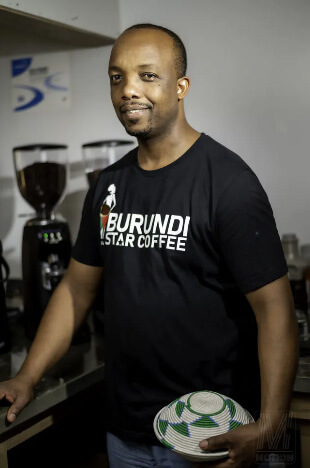I was born the daughter of a coffee farmer in the Ngozi province of Burundi. Unlike many other girls in Burundi, my father was able to send me to school, and when I was 15 I joined the family business. My job included cherry picking, weighing the day’s harvest, and keeping records. Every day was busy from sun-up to sun-down, but the coffee harvest season was by far the busiest, and most important, time for Burundi farmers like my father. During this time, it was imperative that the ripest, reddest cherries be transported to the nearest wash station (30 miles from where we lived) to then be sold the same day, lest they go bad and lose their value. Sometimes, we would have to wait as long as 2 days in line at the wash station after carrying the cherries on our heads for that 30 mile walk. Even so, once our produce was washed, processed, and sold, we would not receive any payment for 3 months. Payday (Umunsi w’Ihemba) was always a special time for the farmers and their families. We would eat special meals, buy new clothes, dance, and celebrate. I remember the adults indulging in ‘western beers’, considered a luxury compared to their regular local beer (Urwarwa).

In 2006 my husband, Andre, and I moved to Maine with our 4 year old son, Keroi, as asylum seekers. Although I had considerable professional experience working as a Coordinator Assistant and Bookkeeper for UNHCR Burundi Agency (United Nations High Commissioner for Refugees), and as a district manager for HealthNet TPO (Transcultural Psychosocial Organization), I could not find work relating to this experience in the states. I instead began working at the Maine Medical Center as an interpreter, while also taking adult education classes to improve my English. In 2019, I graduated from the University of Southern Maine where I earned a degree in Business Management with a minor in Accounting.
In the summer of 2018, I traveled back to Burundi to visit my family, and I just so happened to arrive the day before payday, a normally joyous time. However, I was shocked at how much things had changed since the celebrative paydays of my childhood. My father told me that they had been forced to abandon their coffee farming, as what had previously been a relatively lucrative arrangement was no longer paying off. Where I’m from, the cost of everything is compared to the price of a western beer, since it is a luxury that can usually only be afforded on paydays. My father told me that the price for 1kg of cherries could not even buy a single bottle of western beer anymore. The next day, I visited my old neighbors and was shocked and saddened by what I saw. Instead of the smiling happy faces I was used to, I saw hunger, poverty, and children of both genders unable to go to school because their parents could no longer afford it. Despite the challenges I had faced when Andre and I decided to move our family to America, I realized how fortunate we were. My children can go to school, our bellies are full, and there is always opportunity for both personal and professional growth.
After a chance meeting with Mike Mwenedata, the Co-owner of Rwanda Bean, I learned how he was using this opportunity to not only grow a business for himself, but also to help his community back in Rwanda. I decided to do the same for my people in Burundi. I identified my goals:
I am now the USA representative of the IWCA (International Women Coffee Alliance, Burundi Chapter). IWCA has 2210 members, all women who grow, produce, and operate in different regions (Mwaro, Ngozi, Kayanza, and Kirimiro). I have also recently opened my cafe, Burundi Star Coffee in Portland, where I sell coffee sourced directly from my home country. I am so proud to have found a way to marry my old life to my new one, and to bring opportunities of sustainable business, education, healthcare, and more to my people back in Burundi. Only through mutual respect, fair trade, and communication can growth be reached, and I look forward to sharing my culture with the Portland community and to continue honoring my roots as a Burundi coffee farmer’s daughter.
– Jocelyne Kamikazi



